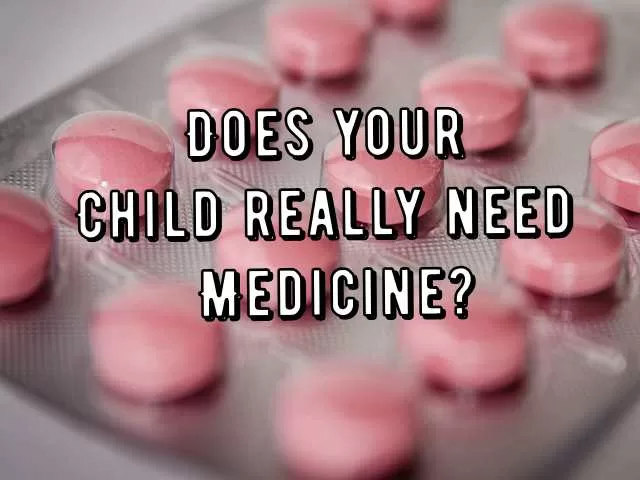When your child returns from school with sniffles, a nagging cough, or a slight fever, the immediate instinct might be to rush to the store for cough and cold medicine. However, not all symptoms warrant medication, and many over-the-counter (OTC) options treat symptoms rather than the underlying illness.
This guide empowers parents to discern when medicine is necessary, the age considerations, and the potential risks associated with unnecessary medication.
Table of contents
1. Understanding Symptom Severity
Before reaching for medicine, assess the severity of your child’s symptoms. OTC medications are most effective against severe symptoms rather than minor discomfort. A slight case of sniffles may not require medication, while severe congestion could benefit from a decongestant. Use common sense or consult your pediatrician to gauge the necessity of medication based on the intensity of your child’s symptoms.
2. Age Considerations
Consider your child’s age when deciding on medication. Infant OTC medicines may not be reliable for treating symptoms, and children under the age of 2 face potential life-threatening side effects from certain OTC medications. The FDA is currently reviewing guidelines for toddlers to ensure their safety. Prioritize caution and consult your pediatrician for guidance on age-appropriate remedies.
3. Questioning the Need for Medication
Given that OTC medicines are man-made and contain chemicals, it’s essential to question the necessity of medication, especially if your child’s symptoms are minor. Ingesting unnecessary medicines may pose potential harm, and the risk of side effects should be weighed against the effectiveness of the treatment. When in doubt, err on the side of caution and explore alternative, natural remedies.
4. Natural Alternatives and Home Remedies
Consider exploring natural alternatives before resorting to medication. Honey can be effective in soothing coughs, warm saline solution helps with nasal congestion, and maintaining hydration aids in overall recovery. Simple home remedies, coupled with rest and a nutritious diet, can often provide relief without the need for pharmaceutical interventions.
5. Consulting Your Pediatrician
Maintaining open communication with your pediatrician is crucial. If you are uncertain about the necessity of medication or concerned about potential side effects, seek guidance from your child’s healthcare provider. Your pediatrician can provide personalized recommendations based on your child’s health history and individual needs.
6. Balancing Risks and Benefits
When considering medication, weigh the potential risks against the benefits. If the symptoms are mild and manageable without medication, opting for a more conservative approach may be the safest choice. Strive for a balanced approach that prioritizes your child’s well-being while minimizing unnecessary exposure to pharmaceuticals.
7. Educating Yourself on Medication Risks
Stay informed about the potential risks associated with OTC medications. Understand the ingredients, possible side effects, and any warnings or guidelines provided by the manufacturer. Being educated empowers you to make informed decisions about your child’s health.
8. Promoting Healthy Lifestyle Practices
Incorporate healthy lifestyle practices into your child’s routine to promote overall well-being. Emphasize the importance of a balanced diet, regular exercise, and sufficient sleep. A strong immune system reduces the likelihood of frequent illnesses, lessening the reliance on medications.
Conclusion: Prioritizing Informed Healthcare Decisions
As parents, making healthcare decisions for our children is a responsibility that requires careful consideration. By understanding the severity of symptoms, considering age-appropriate remedies, questioning the necessity of medication, and consulting with healthcare professionals, we prioritize informed decision-making. Ultimately, a holistic approach to your child’s health, incorporating natural remedies and thoughtful consideration of medication use, ensures their well-being and resilience against future illnesses.

